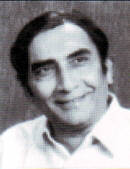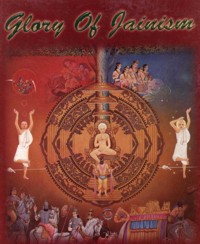Sadhvi Manorama
Princess Manorama was young and wallowing in luxuries. She enjoyed all conceivable material comforts. To top it all, she was alluringly lovely. She thought: “I am beautiful, rich and happy. I want my husband also to be equally rich and handsome. I will get betrothed to such a man.” Manorama enjoyed life to the hilt. Cupid, the love-god, had struck his arrows and she became love-lorn. Many a prince had expressed a desire to tie the nuptial knot with her but Manorama found them all uninteresting and all the proposals were spurned.
Once Manorama was being carried in a palanquin and she heard a youth’s sweet, mellifluous voice. It struck a responsive chord in her heart and she felt happy. She stopped to listen to the narration of love-sports in spring and of intoxicating tales of love full of shringar rasa (amorous). She herself arrived at anupashraya in search of the man whose voice had hypnotised her. At that time Acharya Abhaydevsuriji was preaching his disciples. The disciples were absorbed in listening to what the guru was saying. Princess Manorama, hypnotised as she was, lost herself in the Acharya’s eloquence. She approached the Acharya and said: “O prince! Accept me. You and I would make a unique blend and it would be heaven on earth.”
The Acharya knew what she meant. He read her mind and knew what her feelings were. He lovingly said: “O princess! the song that you heard and in whose trail you came here is not yet complete. Listen to it and you will experience bliss. Then act the way you want to.” Acharya’s voice rang out shringar rasa (sentiment of am or) slowly turned into shanta rasa (sentiment of quietism), making everyone feel inner peace and harmony. The feeling of physical attraction and of physical love melted away giving way to the feeling of vairagya (renunciation). The Acharya, then, narrated how even goddesses made their way to the supreme god. And then he also gave a description of the supreme being. He expounded on the significance of the beauty of soul which is far superior to the physical one. Self-abnegation and sacrifice are far more important than accumulation of wealth or possessions. Princess Manorama was now a transformed Manorama. Her passions and desires were completely purged, attachment turned into detachment and she accepted the robes of a nun.
Life-sketch of Sadhvi Manorama reveals the fact that unlike the body, the spirit or the Atma (soul) is of utmost significance. Indeed human beings chase the corporeal joys and pleasures but such joys are finite. A beautiful and young looking body is subjected to old age and death; passions, desires and attachments that are associated with the body are as well destructible. Only the determined souls can attain the ultimate vairagya or freedom from passion and attachment. Thereby one can genuinely devote one’s self to the pursuit of Tirthankar, the incarnate vitrag. The remarkable change in the life of Manorama is illustrative of a great phenomenon of transformation of life-style.
 Dr. Kumarpal Desai
Dr. Kumarpal Desai

